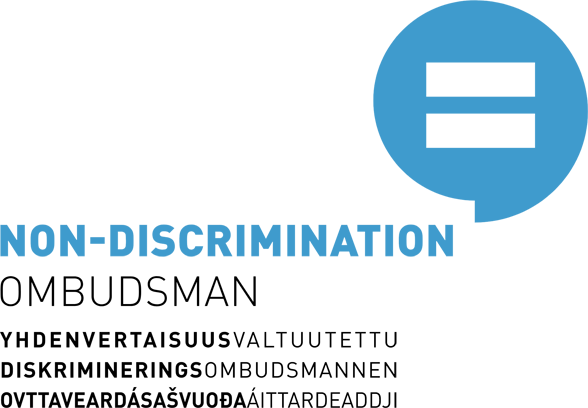Rights of people with disabilities
Disability is one of the most common grounds for discrimination that results in contacting the Non-Discrimination Ombudsman.
On the formal level, the legislation and rights of people with disabilities are good, but there are problems with the access to rights. Problems related to issues such as accessibility, freedom from barriers and disability services as well as access to services arise in the work of the Non-discrimination Ombudsman. One key factor behind the problems faced by people with disabilities is negative attitudes and a lack of knowledge.
Discrimination based on disability
People with disabilities experience discrimination in many aspects of their lives. A large part of the discrimination is embedded in the structures of the society, such as the inaccessible built environment or legislation written from the perspective of non-disabled people.
Contacts received by the Non-discrimination Ombudsman have revealed discriminatory practices or individual situations related to early childhood education and care, comprehensive school, studies, working life and acting as a consumer. The complaints have involved people with disabilities of different ages. The problems have included, among other things, a lack of special arrangements, failure to take individual needs into account, diagnoses or their deficiencies, assistive devices or necessary services.
The UN Convention on the Rights of Persons with Disabilities (CRPD) entered into force in Finland in the summer of 2016. The Convention covers the whole course of a person’s live, ensuring equal rights to everyone regardless of disability. The definition of disability in the CRPD is broad. Key principles of CRPD are equality, non-discrimination, participation, inclusion, accessibility and freedom from barriers. There are still a lot of problems related to following the Convention; one of the most central ones is a lack of information about the Convention and its application.
Reasonable accommodations promote equality
Authorities, education providers, employers and providers of goods and services must provide reasonable accommodations for people with disabilities as needed. The accommodations secure the equality of people with disabilities in individual situations. Denial of reasonable accommodation constitutes discrimination under the Non-Discrimination Act. The needs of the person with disabilities shall be the primary basis for assessing reasonable accommodation.
In schools and educational institutions, reasonable accommodations can also be made by providing the necessary assistive devices for classrooms, developing alternative options to complete the studies and by adapting the teaching.
In employment, reasonable accommodations may mean adapting the workstation to suit the employee or implementing different working methods or IT solutions.
In restaurants, accommodating a customer with a visual impairment may include describing the contents of the menu, among other things. For customers with a hearing impairment, it is important to speak clearly and look directly at the customer. A sign language interpreter must be used in all situations, in which the customer is accompanied by an interpreter.
- The accommodations must correspond to the needs of the person with a disability in each situation. Usually the need is discovered when people tell about the need.
- Reasonable accommodations are assessed on a case-by-case basis, and accommodations can be implemented in different ways in different situations.
- The obligation does not include accommodations that cause an unreasonable financial or other burden: for example, a small brick-and-mortar shop cannot be expected to provide as extensive accommodations as a large chain of department stores.
Reasonable accommodation applies to the contents of services provided by an authority. Reasonable accommodations for disabled customers or applicants must be taken into account when authorities make decisions on issues such as disability services or school transport.
An accessible society is a requirement for inclusion and equality
A society that has been designed to suit everyone and built to be accessible and barrier-free is a basic requirement for an equal life.
Accessibility and freedom from barriers include, for instance:
- barrier-free passage through buildings and the built environment, accessible toilets
- the Government Decree on Accessibility of Buildings (241/2017) and accessibility solutions that are more ambitious than the decree
- functional listening and lighting conditions (e.g. a short reverberation time, glare-free lighting)
- easily detectable signs, well-working colour and contrast, audible signals
- functioning induction loops in auditoriums and service points
- public transport that is suitable for all (e.g. usability of ticket punching devices, low-floor buses, audio and visual announcements, compatibility of platforms and equipment),
- possibility of acquiring wheelchair spaces for public events from the websites of ticket sellers (in the spring of 2017, the Non-Discrimination Ombudsman drew up a recommendation for event organisers and ticket sellers in order to improve the accessibility of events; note that the recommendation should be updated with regard to section 4 in particular.)
- accessibility of web pages and applications and their functionality with screen readers, among other things,
- subtitling of videos and programs for deaf and hard-of-hearing and interpretation into sign language,
- using simple language in written materials.



